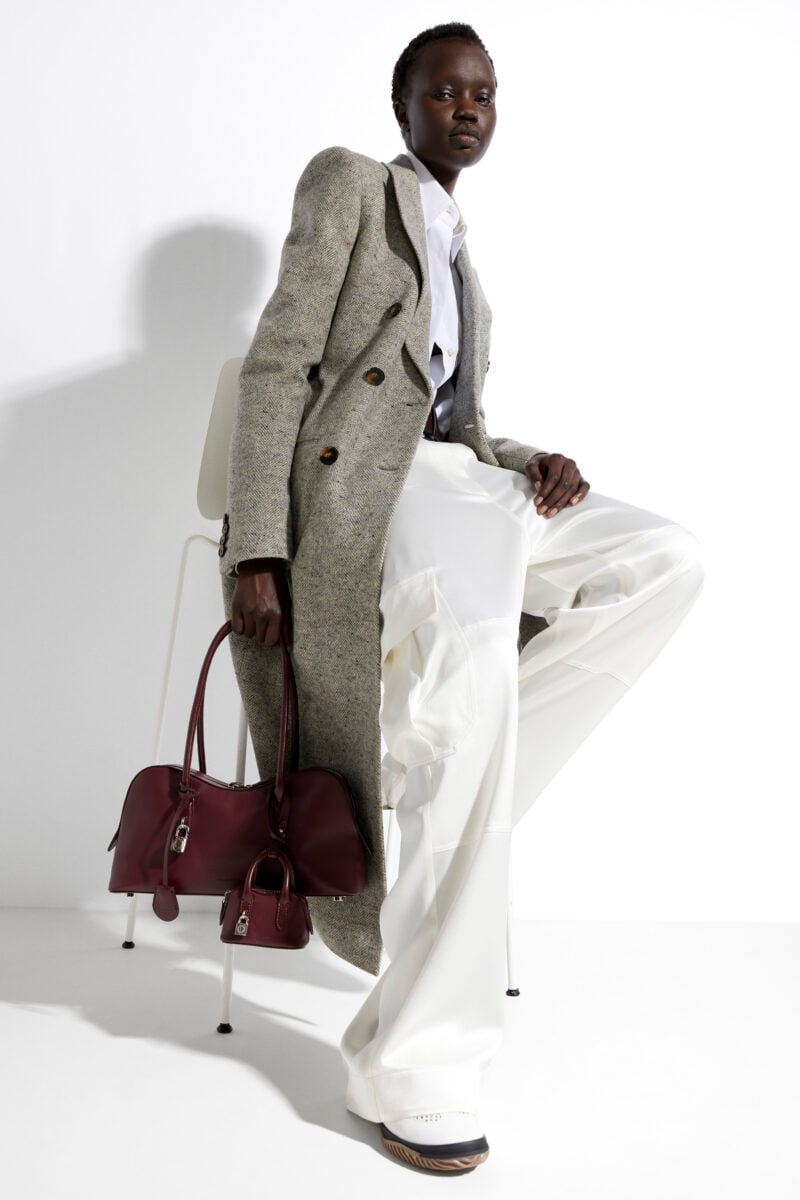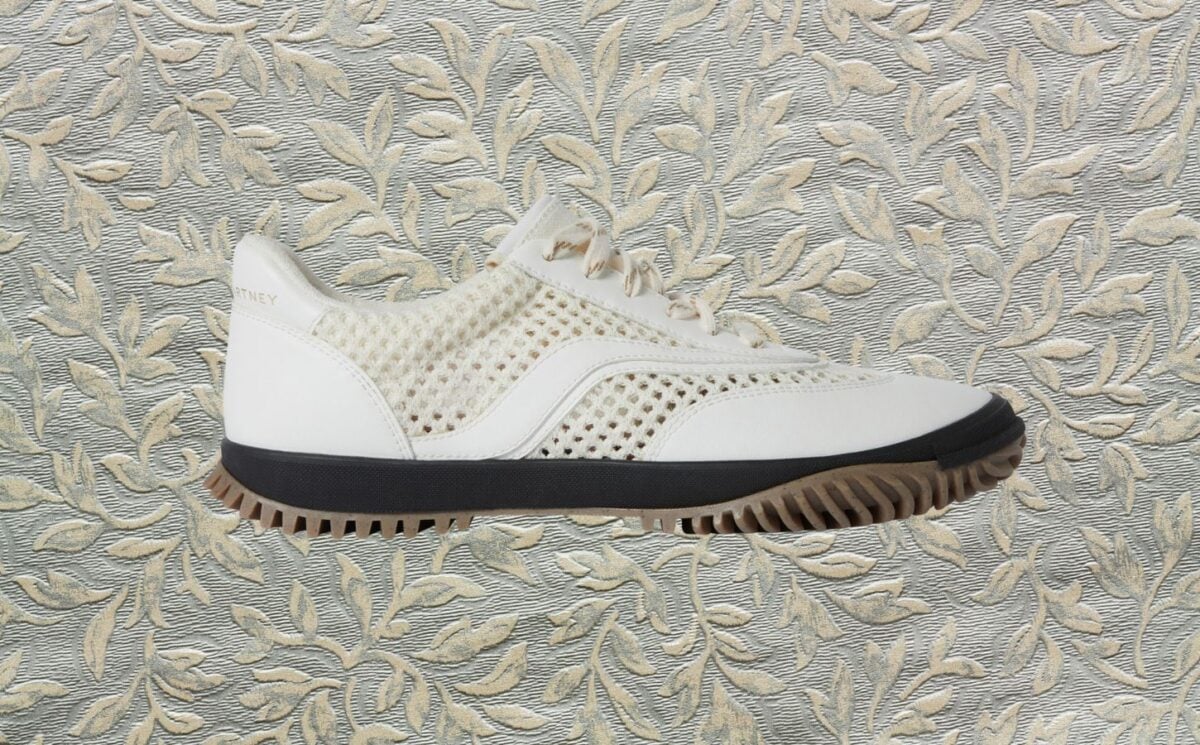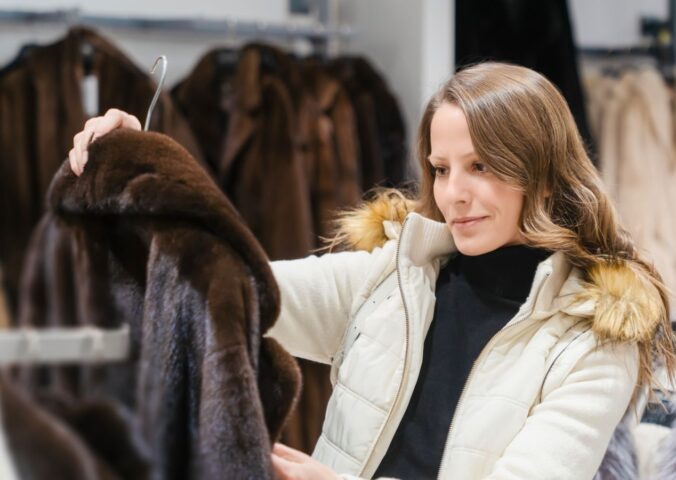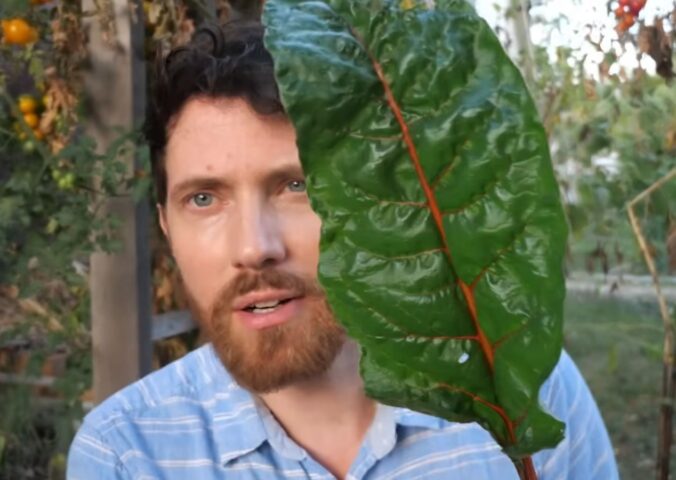Stella McCartney is revisiting its vegan and sustainable S-Wave Sport sneakers for fall 2025.
The shoes feature Piñayarn uppers made from upcycled pineapple waste and soles made from BioCir Flex, a biobased, recyclable rubber alternative. The soles are also dyed using cinnamon, which gives the shoes a naturally warm scent.
Read more: The Best Vegan Trainers To Buy In The UK
According to Stella McCartney, upcycling pineapple waste means that the uppers require no extra land, water, or pesticides. Furthermore, upcycling the waste saves up to 6kg of CO2 emissions per 1kg of yarn by reducing the amount of leaves burned during harvest.
Previous versions of the S-Wave incorporated recycled TPU plastic soles to keep the shoe’s metaphorical footprint as small as possible. However, even recycled plastics can take hundreds of years to break down. For this new iteration, Stella McCartney partnered with Balena to make BioCir Flex, which is fully compostable but retains the durable flexibility of traditional rubber.
The British fashion house described the S-Wave as its “most responsible sneaker to date,” and has combined sustainable materials with the aesthetic of vintage running shoes. The fall 2025 S-Wave Sport includes a breathable mesh alongside the pineapple uppers, a retro fold-over tongue, and a brown, white, and black color scheme for a smart-casual appearance. The fall collection also includes a version with all-white uppers and without the fold-over tongue.
Stella McCartney’s S-Wave Sport sneakers have an RRP of £520 per pair and are available online and at select retailers worldwide. At end of life, customers can send their S-Wave sneakers back to Stella McCartney for recycling or composting to further minimize the environmental cost.
Read more: Scientists Grow A Vegan Self-Dyeing Leather Shoe From Bacteria
Sustainable shoes and the leather industry

Stella McCartney herself, who founded the eponymous fashion house over 20 years ago, has long advocated for sustainable and animal-friendly materials. In 2023, she described the idea that leather was simply a byproduct of the meat industry as “sheer nonsense.”
More than 30 percent of footwear features leather, while footwear makes up approximately 42 percent of current demand for leather. The industry has a significant environmental impact and is linked to deforestation, pollution, and the climate crisis, in addition to animal cruelty.
Read more: What Is Vegan Leather? The Best Alternatives For 2025






